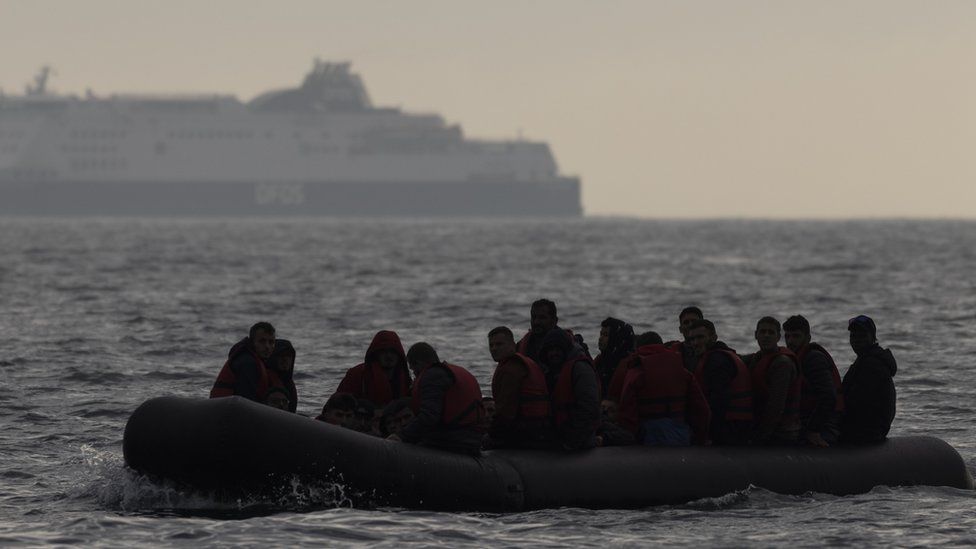ARTICLE AD BOX
 Image source, Getty Images
Image source, Getty Images
By Paul Seddon
Politics reporter
The government has announced plans to end the use of 50 hotels housing asylum seekers by the end of January.
In an announcement to MPs, Immigration Minister Robert Jenrick said the first hotel contracts would end in the coming days, with further "exits" to be announced "shortly".
The use of hotels has increased in recent years, as the number of people entering the UK illegally or claiming asylum has hit record levels.
How many asylum seekers are living in hotels?
According to the latest available data, 50,546 asylum seekers were being housed in hotels in the UK at the end of June. This is around 10% more than the 45,775 living in hotels at the end of last year.
According to a Freedom of Information request by BBC East Investigations, 380 hotels were being used to house asylum seekers across the UK at the end of June.
In March 2023, government sources told the BBC there were 395 hotels being used for this purpose.
Mr Jenrick said the government had avoided the use of a further 72 hotels through increased room-sharing.
In addition to those in hotels, a further 58,636 who have qualified for longer-term support while their applications are processed are in other government-supported accommodation, such as flats.
Asylum seekers would typically only be housed in hotels or hostels for a few weeks, before being moved to long-term self-catered homes.
Where are the hotels located?
The government has not published a detailed list of the hotels being used to house asylum seekers.
The Home Office declined to give the BBC this information, on the grounds it could put individuals in danger.
However, the department did provide a breakdown by UK nations and regions, and top-tier local councils, such as county councils and unitary authorities.
The region with the most hotels in use is London, with 86, followed by south-east England with 50 and the West Midlands with 42.
The part of the UK with the fewest hotels in use was Wales, with two - both of which are in Cardiff. This was followed by north-east England, with eight, with 10 hotels being used in Scotland.
The individual council with the most hotels was Hertfordshire with 12, followed by Birmingham with nine and the London borough of Kensington and Chelsea, with eight.
Image source, Getty Images
Image caption,The use of hotels to house asylum seekers has attracted protests and counter-protests
Which areas have the most people in hotels?
Separately, the Home Office publishes data on the actual number of asylum seekers in hotels, and other longer-term accommodation, by region and councils.
London has the most in hotels, with 15,434 as of the end of June - around one-in-three of all asylum seekers in UK hotels.
This is followed by south-east England with 6,089, with 5,259 in the South West.
They were among five southern regions in England with more asylum seekers in hotels than in longer-term housing.
The opposite was true in other regions of the UK. North-east England, for example, had 653 asylum seekers in hotels, but 6,281 in longer-term accommodation.
And in Wales, the equivalent figures for were 110 in hotels and 3,044 in longer-term housing.
The region with the most asylum seekers in long-term accommodation was the North West, with 14,289.
What is the total cost?
The latest figure for the total cost of asylum hotels is around £8m a day - or £2.9bn a year.
The cost was revealed in the Home Office's annual report, published in September, which called it "unacceptable".
MPs on the Home Affairs Committee were told the cost stood at almost £7m a day in October last year.
Where will hotels be closed first?
The Home Office has not published a list of the 50 hotels that are due stop taking asylum seekers before the end of January.
Mr Jenrick said, however, they would include hotels in all four UK nations. He promised MPs that "we will not stop there" - although he did not commit to precise numbers beyond this.
He also confirmed to the MPs for Knowsley and Harwich and North Essex that a hotel each in their constituency would be among the first wave to stop taking asylum seekers.
The MPs for Copeland, in Cumbria, and Ipswich, in Suffolk, have also since put out statements that a hotel in their area is being closed.
There have been newspaper reports that the government hopes to stop using a further 50 migrant hotels by the end of March, taking the total to 100.
The reports have suggested ministers want to target the closures in constituencies likely to be important to the Conservatives at the next general election, expected next year.
The government has also announced plans to house asylum seekers in large sites such as surplus military sites, barges, former student halls of residence, and holiday parks, to ease the cost of hotels.

 1 year ago
23
1 year ago
23








 English (US) ·
English (US) ·